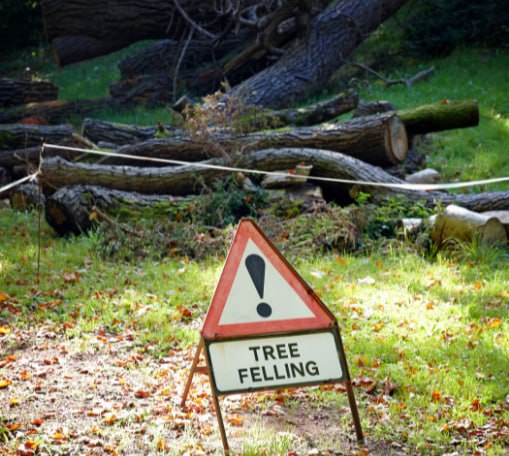
Introduction: Maintaining a healthy hedge requires more than just periodic trimming. At Dover Tree Surgery, we recognise that effective hedge management also involves addressing issues such as root competition and nutrient needs. Understanding how these factors affect your hedge can help you ensure robust growth and longevity. This blog post delves into the importance of managing root competition and nutrient requirements for a thriving hedge, providing practical tips and insights for optimal care.
- Understanding Root Competition
What is Root Competition? Root competition occurs when multiple plants or hedges vie for the same soil resources, including water, nutrients, and space. This competition can be particularly intense if your hedge is planted near other plants, trees, or even structures.
Impacts on Hedges
- Reduced Growth: When roots compete, the hedge may experience stunted growth due to insufficient access to essential resources.
- Weakened Health: Competing roots can make hedges more susceptible to diseases and pests as they become weaker and less resilient.
Managing Root Competition
- Proper Spacing: Ensure adequate spacing between your hedge and other plants or structures. This allows each plant to access sufficient resources without competing excessively.
- Root Barriers: Install root barriers to guide the growth of hedge roots and prevent them from encroaching on other plants or vice versa. This can be particularly useful in urban settings where space is limited.
- Addressing Nutrient Needs
Importance of Nutrients Nutrients are vital for healthy hedge growth and influence everything from leaf development to fruit production. A hedge that lacks essential nutrients will struggle to thrive and may exhibit signs of deficiency, such as yellowing leaves or poor growth.
Key Nutrients for Hedges
- Nitrogen (N): Promotes lush, green growth and overall plant vigour.
- Phosphorus (P): Supports root development and flower/fruit production.
- Potassium (K): Enhances disease resistance and overall plant health.
Nutrient Management Strategies
- Soil Testing: Conduct a soil test to determine nutrient levels and pH. This will help you understand what your hedge needs and avoid over-fertilisation.
- Fertiliser Application: Apply a balanced fertiliser that provides the essential nutrients your hedge needs. For best results, choose a product suited to the specific needs of your hedge species.
- Organic Matter: Incorporate organic matter, such as compost or well-rotted manure, into the soil. This improves soil structure and provides a slow-release source of nutrients.
- Timing Your Hedge Cutting
Seasonal Considerations
- Pre-Growth Pruning: Trim your hedge before the growing season starts. This allows the plant to focus its energy on new growth and ensures that it has enough resources to support healthy development.
- Post-Harvest Cutting: For hedges that produce fruit or flowers, trim after the harvest to maintain shape and encourage new growth for the next season.
Technique Matters
- Selective Pruning: Remove older, less productive branches to direct nutrients to new growth. This helps improve the overall health and productivity of the hedge.
- Avoid Over-Pruning: Do not cut too much at once, as this can stress the plant and affect its ability to utilise nutrients effectively.
- Maintaining Soil Health
Soil Management
- Mulching: Apply a layer of mulch around the base of the hedge to retain moisture, regulate soil temperature, and suppress weeds. Organic mulch also adds nutrients to the soil as it decomposes.
- Aeration: Regularly aerate the soil to improve root health and enhance nutrient absorption. This can be done using a garden fork or a specialised aeration tool.
Watering Practices
- Consistent Moisture: Ensure your hedge receives consistent watering, especially during dry periods. Proper hydration supports nutrient uptake and overall plant health.
- Avoid Waterlogging: Ensure good drainage to prevent waterlogging, which can harm roots and reduce nutrient availability.
- Professional Assistance
When to Seek Help
- Expert Evaluation: If you’re unsure about the specific needs of your hedge or how to address root competition and nutrient issues, consider consulting a professional. At Dover Tree Surgery, we offer expert assessments and tailored advice to help you manage your hedge effectively.
- Professional Services: Our team can assist with hedge cutting, soil testing, and fertilisation to ensure your hedge remains healthy and well-nourished.
Conclusion: Effective hedge cutting goes beyond trimming; it involves managing root competition and addressing nutrient needs to ensure a thriving, healthy hedge. By understanding these factors and implementing appropriate care strategies, you can enhance the growth and longevity of your hedge.
Call us on: 01304 796896
Click here to find out more about Dover Tree Surgery
Click here to complete our contact form and see how we can help you with your tree’s needs.